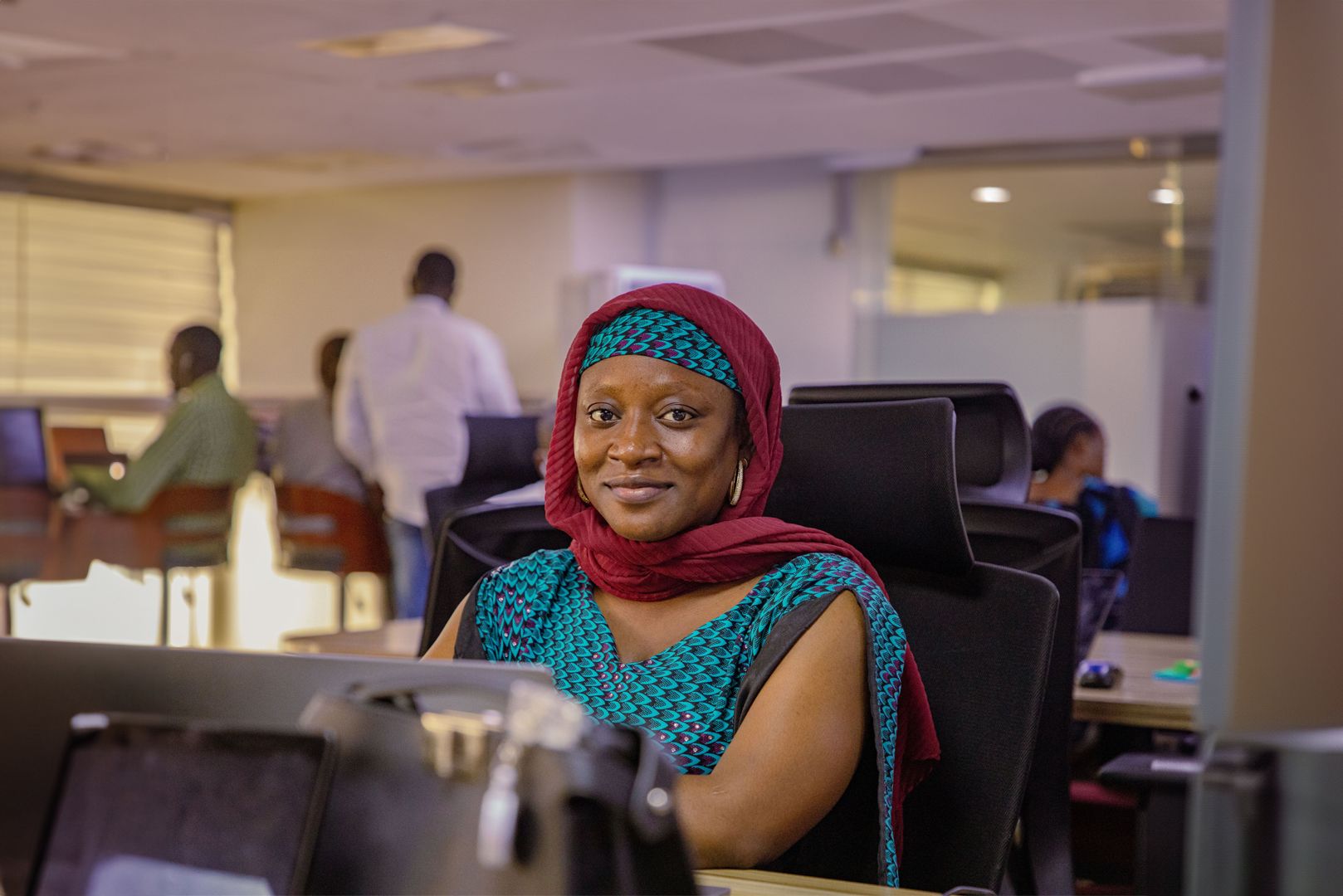Reading time:5 min read
Why Supply Chain Expertise Matters in the Commodities Sector
Azeeza Lawal is among the 10% of Nigerians who work professionally in the field they studied. This warm-toned logistics professional believes the shortage of commodities supply chain experts is threatening the country's food security. In this chat, she discusses standing out in a male-dominated field and bridging the gap between theory and practice, highlighting the transformative potential of skilled supply chain professionals in Nigeria’s commodities market.
Thank you for joining us, Azeeza. Tell us about yourself.
My name is Azeeza Lawal. I work with AFEX Fair Trade Limited as a Communication & Development Analyst; my role requires me to actively function in the logistics squad. Non-career-facing, I believe I am the best chair dancer ever and I do amazing voice impressions. So, yeah, I’m usually the fun in any group.
We have a rock star here! lol Did your love for movements push you into Logistics?
(chuckles) Definitely not. You know when life throws you lemons and you choose to make juice? I found myself around logistics from my university days when I studied transport and logistics technology. Getting to AFEX as a customer care analyst, I was elated when I transitioned into the logistics squad. It feels amazing to put all my theories into practice.
Wait, this is the 2nd time I’ve heard of a BSc in supply chain/logistics.
Everyone has the same reaction when I mention this. There are very few professionals who study this. We have a small sect of professionals in the country.
Ahhh, are there many women in this field?
Absolutely not, I was one of the only 5 female students in my entire department. I think this pushed me to work harder and as a star girl I made my mark. Finding myself in a male-dominated field has motivated me to do more and get the job done. I think it’s the same here with the squad, what I have learned though, is the need to collaborate.
Lovely. Can you paint me a story on what your day-to-day activities are in the supply chain?
Ideally, it starts with ensuring the smooth operation of ongoing tasks and movements. This means checking in with truck drivers to confirm their location and identify any potential delays. Once we have a handle on the trucks in motion, I focus on preparing new shipments. These "fresh batches" represent the beginning of new interstate journeys. I then reach out to warehouse managers to verify that the goods are ready and match our system's order exactly. The same process applies when we expect goods to arrive at warehouses.
Everything shuffles between calls and inputting data, so it is a feeling of touching grass and being at the laptop. You understand?
I do. You mentioned interstate movements, how do we handle the logistics of commodities that require certain standards of preservation?
In Nigeria, the scene is usually that the producing states are not necessarily the consuming states. So, the movement of say, maize which requires low to no humidity may be impacted by longer hours on the road. And we know there could be delays due to poor road conditions and rough terrain. What we do is estimate, factoring in the high possibility of delays.
Firstly, what type of trucks can successfully covey these commodities without tampering with the quality?
This requires special vehicles like dry vans, enclosed trailers, and open-top containers. But there are limited numbers of these available and it is expensive to manage. All these impede the success of the supply chain. However, in the spirit of AFEX’s excellence, we have ensured that adequate measures are taken to have good preservation and drying processes within our warehouses so that the journey has little or no effect on the commodities.
Better the best or nothing.
As someone working in a field, they love and studied, do you see connections between theories and realities?
Love? (laughs), Well, it’s refreshing seeing some of these scenarios we analyzed within classrooms play out. Sure, the textbook models of streamlined supply chains are great in theory. But then you get into the practicalities of working in the Nigerian commodities sector, and things get interesting. We're talking infrastructure hurdles like pothole-ridden roads and unpredictable fuel costs. Add to that the limited availability of advanced storage facilities and the occasional security concern, and it becomes clear that textbook solutions need some real-world adjustments.
However, that's precisely where the opportunity lies. There's a growing need for experienced professionals in Nigerian commodity logistics. This field is perennial – as long as humanity exists, there will be a need to move food and commodities. We essentially bridge the gap between areas with resource surpluses and those with shortages.
Currently, the challenge is that sometimes individuals without a strong supply chain background find themselves leading teams. Imagine the potential impact of having a workforce equipped with the knowledge and skills to navigate these unique complexities. Investing in a robust network of supply chain professionals would be transformative for the Nigerian commodities sector. We're talking about boosting efficiency, reducing costs, and ultimately, getting our excellent Nigerian products to market faster and more reliably. That's a win-win for everyone involved.
This is the fourth and last part of the series on the heart of our commodities trade at AFEX. Please click previous stories if you would like to get the whole view.
The heart of our commodities trade; A look into the logistics team at AFEX.
Thank you for reading, if you enjoy this, share it within your network.
